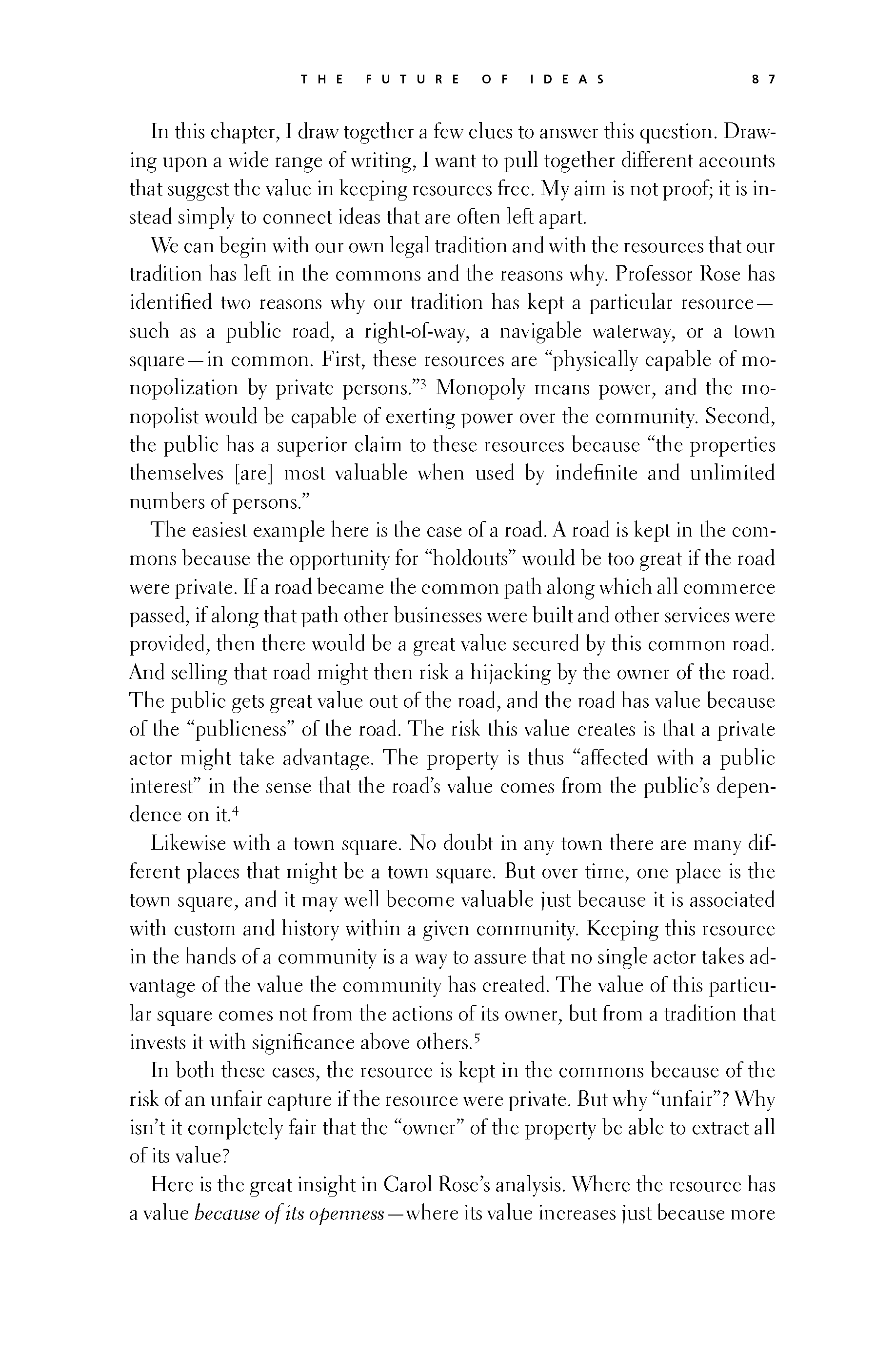 p086 _
-chap- _
toc-1 _
p087w _
toc-2 _
+chap+ _
p088
p086 _
-chap- _
toc-1 _
p087w _
toc-2 _
+chap+ _
p088
In this chapter, I draw together a few clues to answer this question. Draw-
ing upon a wide range of writing, I want to pull together different accounts
that suggest the value in keeping resources free. My aim is not proof; it is in-
stead simply to connect ideas that are often left apart.
We can begin with our own legal tradition and with the resources that our
tradition has left in the commons and the reasons why. Professor Rose has
identified two reasons why our tradition has kept a particular resource --
such as a public road, a right-of-way, a navigable waterway, or a town
square -- in common. First, these resources are "physically capable of mo-
nopolization by private persons."[6-3] Monopoly means power, and the mo-
nopolist would be capable of exerting power over the community. Second,
the public has a superior claim to these resources because "the properties
themselves [are] most valuable when used by indefinite and unlimited
numbers of persons."
The easiest example here is the case of a road. A road is kept in the com-
mons because the opportunity for "holdouts" would be too great if the road
were private. If a road became the common path along which all commerce
passed, if along that path other businesses were built and other services were
provided, then there would be a great value secured by this common road.
And selling that road might then risk a hijacking by the owner of the road.
The public gets great value out of the road, and the road has value because
of the "publicness" of the road. The risk this value creates is that a private
actor might take advantage. The property is thus "affected with a public
interest" in the sense that the road's value comes from the public's depen-
dence on it.[6-4]
Likewise with a town square. No doubt in any town there are many dif-
ferent places that might be a town square. But over time, one place is the
town square, and it may well become valuable just because it is associated
with custom and history within a given community. Keeping this resource
in the hands of a community is a way to assure that no single actor takes ad-
vantage of the value the community has created. The value of this particu-
lar square comes not from the actions of its owner, but from a tradition that
invests it with significance above others.[6-5]
In both these cases, the resource is kept in the commons because of the
risk of an unfair capture if the resource were private. But why "unfair"? Why
isn't it completely fair that the "owner" of the property be able to extract all
of its value?
Here is the great insight in Carol Rose's analysis. Where the resource has
a value _because_of_its_openness_ -- where its value increases just because more
[[87]]
p086 _
-chap- _
toc-1 _
p087w _
toc-2 _
+chap+ _
p088